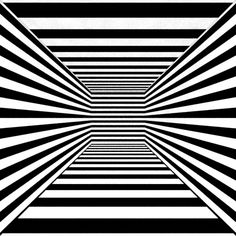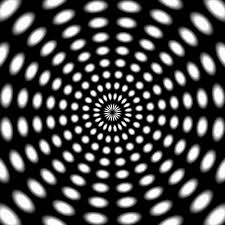|
LITR 4368 Literature of the Future |
Sample answers
for Essay 1:
|
 |
Taylor Fraze
May
4, 2016
Our Past or Our Future: Low-tech vs. High-tech Science Fiction
Similar to real life, the literary world of Science Fiction is constantly
changing and evolving. Once a genre composed of dramatic black outfits,
technologically advanced gadgets, and futuristic concepts, it has shifted gears
and now works that are considered recent Science Fiction focuses on life post
apocalypse. In her 2015 comparison essay, Victoria Webb references both
The Matrix and
Terminator, both considered Science
Fiction, but they align more closely with the older idea of the genre. In just
under a year, more popular references would now include
The Hunger Games series,
The Maze Runner, or
The Lunar Chronicles. Despite the
change in themes of Science Fiction references, over time there continues to be
a continual presence of both high-tech and/or low-tech qualities. Understanding
a high-tech text means knowing that the literary world most likely started as
low-tech, which is most similar to our present world, and evolved into a more
technologically advanced society; this evolution usually occurs after a disaster
of some sort (i.e. flood, disease, etc.). A work of Science Fiction will
frequently be dominant in either high or low-tech. However, this does not mean
that it cannot possess qualities of both. Keeping this in mind, it is,
therefore, important for readers to understand and possess the ability to
differentiate between high-tech and low-tech.
When looking at high and low-tech writing, there are several key ideas to
observe and compare. The most prominent of these is the sense of unfamiliarity
found in high-tech versus the present day qualities of low-tech. Dr. White’s
course terms defines high-tech as having characteristics of a “virtual reality”,
computer simulation, or “dark Euro clothing” (aka Victoria Webb’s
The Matrix reference). This concept
is put into perspective when diving into the short story
The Onion and I where the narrator, a
young boy is caught between a virtual world and the last traces of the physical
world. Throughout the story, he tells of the life he has in the virtual town of
Bidwell. One of the more high-tech aspects of the story comes from the joining
of his parents in marriage; his mother created separate “home pages” for herself
and his father. These homepages were combined, representing a marriage. After
building a life together in the physical world, they begin to scan their
possessions into a virtual one, a world that is the only life the narrator
knows; that is until he learns of his father’s past life. At this point in the
story, characteristics of high-tech and low-tech are fused together as the
narrator uses his virtual reality to discover what a real onion is.
The
resistance against letting the past go, though not necessarily against a
changing future, appears to be somewhat of a constant in Science Fiction.
Drapes and Folds displays a unique
blend of high-tech and low-tech qualities as it tells the story of Pearl, a
100-year-old woman who declares, “cloth is [her] life”. The story is a snapshot
of her struggle as the government takes action to remove remnants (pun intended)
of an older, more familiar world (127). The story talks of FabricLaws, a
nutritional fueling station, and the Chicken Years; all concepts that appear
distant in comparison to a reader’s present day reality. Another Science Fiction
text, Speech Sounds, portrays more
low-tech qualities and is far more relatable to the reader’s reality. Though the
text is set in a post apocalyptic world, full of destitution and disease, there
are details within the text that the reader can relate to. For example, the main
character Rye talks of Los Angeles, the LAPD, and the introduction takes place
on a bus. Though the time period may seem far off, as well as some of the
concepts Rye talks of, the reader can associate ideas from the text to ones
within their own reality. The ability to relate to components of the store is a
key characteristic of low-tech science fiction.
The
text Chocco is a unique one in the
Science Fiction genre due to the way that it approaches the idea of post
apocalyptic or future worlds. The reader is introduced to candidates for a new
memory keep, Jon and Mikal. The young boys are to discuss the lessons their
society can learn from the Machine People. As each boy shares his story, there
is a sense of warning about the way the Machine People lived their lives; from
Jon’s story, the reader knows these people faced a “terrible collapse”, which
places this story in a post-apocalyptic realm (FP, 193). The story does not talk
of Jon and Mikal’s world being full of highly advanced technology, gadgets or an
unimaginable life. Rather, they talk of things the reader would understand or
could imagine. This would place Chocco
in the low-tech column of Science Fiction. But the text goes further as it gives
hints of warnings throughout. Both boys talk of the collapse or Die-off, caused
by high population growth and the failure by the Machine People to monitor their
agricultural habits. This text takes a world that the reader is familiar with
and uses it as a warning, showing them the possible devastation it could cause.
This use of low-tech qualities is one way it differs from high-tech within the
Science Fiction genre.
Initially, before the start of this
semester, I had enjoyed Science Fiction texts such as
The Lunar Chronicles and the
Harry Potter series. I knew and
understood that there were different styles of Science Fiction, but I was
unaware that they had been identified as low-tech and high-tech. Learning this
made me look at texts that I had read, and began to read this semester, from a
whole new angle. Interestingly, this made sense to me. Having different styles
and qualities, there would be a need to identify them as different sub-genres.
From a leisurely point of view, the differences between them may not matter.
But, academically, it is important to know the characteristics of each sub-genre
in order to be able to better analyze and critique the writings.




